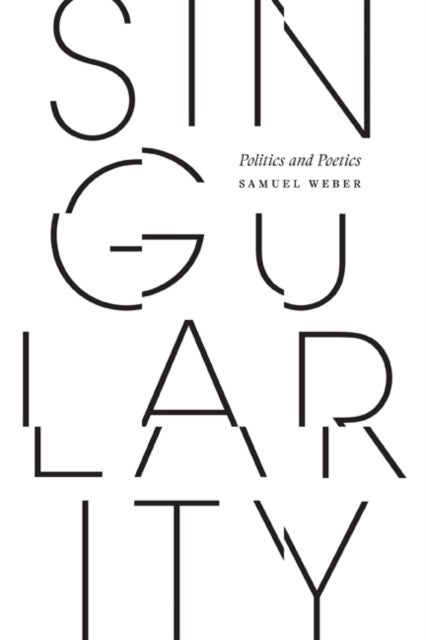
Singularity av Samuel Weber
319,-
<P><B>An influential thinker on the concept of singularity and its implications on politics, theology, economics, psychoanalysis, and literature</B><BR/><BR/> For readers versed in critical theory, German and comparative literature, or media studies, a new book by Samuel Weber is essential reading. <I>Singularity</I> is no exception. Bringing together two decades of his essays, it hones in on the surprising implications of the singular and its historical relation to the individual in politics, theology, economics, psychoanalysis, and literature. Although singularity has long been a keyword in literary studies and philosophy, never has it been explored as in this book, which distinguishes singularity as an “aporetic” notion from individuality, with which it remains historically closely tied.</P><P>To speak or write of the singular is problematic, Weber argues, since once it is spoken of it is no longer strictly singular. Walter Benjamin observed that singularity and repeti








